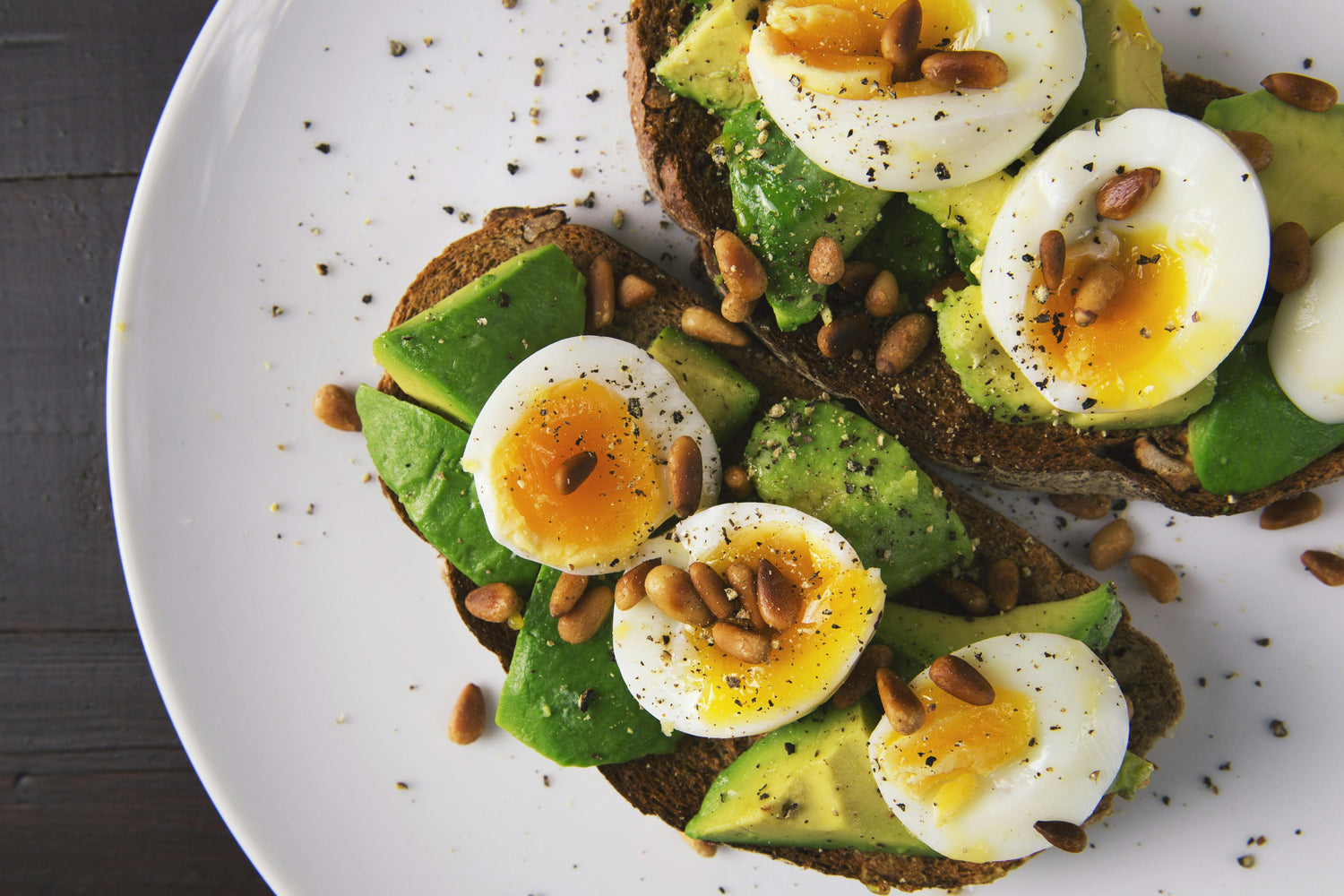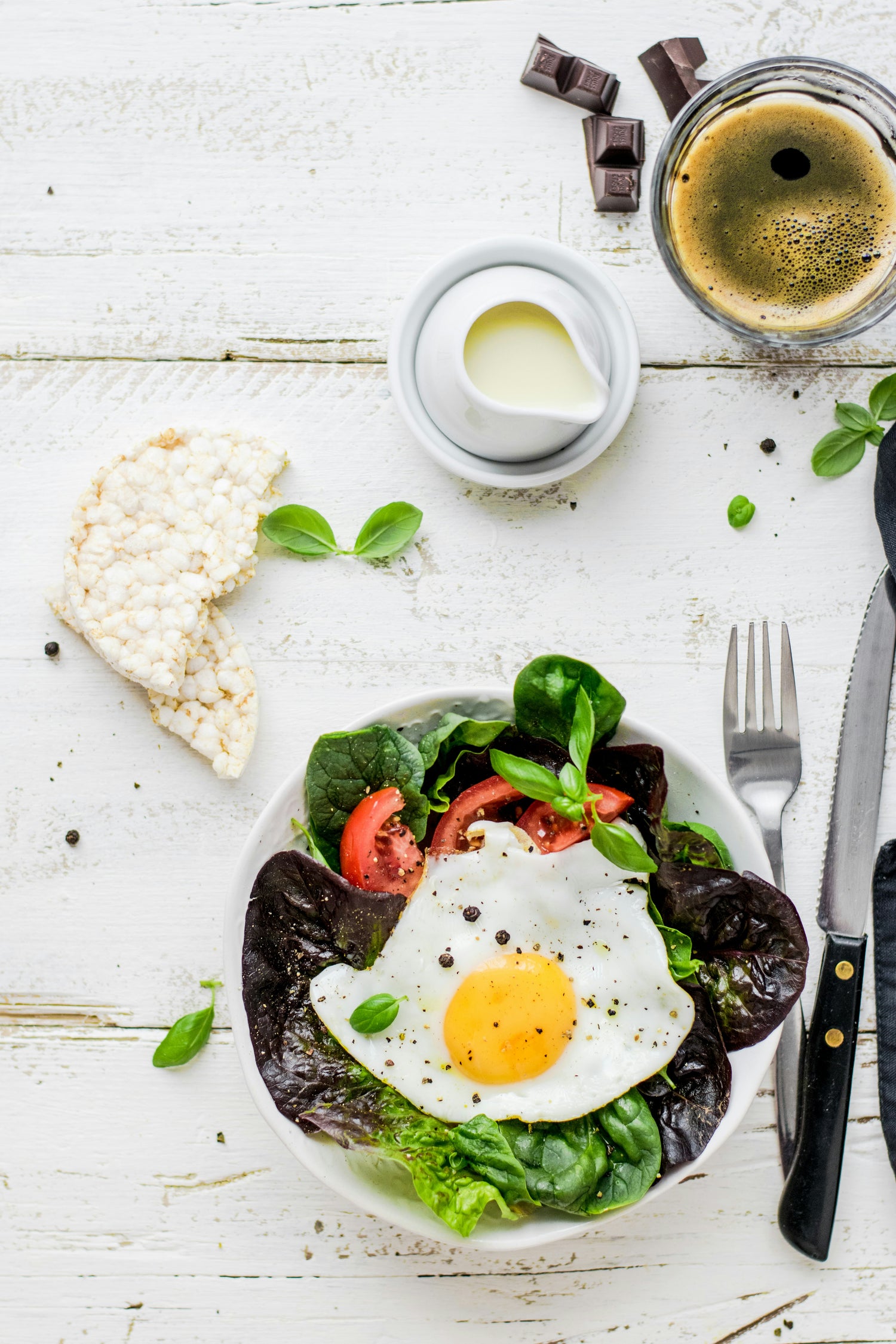Balancing Weight Loss in your Postpartum Journey
BY JORDANA VENTZKE

Achieving weight loss postpartum is hard. There is a lot going on - adjusting to life with a newborn, figuring out your new “normal” with routines and sleep, and recovering from birth. And then to top that off, we have the societal pressures to “bounce back”. Which is a completely unrealistic expectation and pressure we put on ourselves as new moms.
Yes, we would potentially feel better about ourselves if we lost a few kilograms, but this stress of trying to lose weight can dramatically affect many other areas in our lives. It can affect our ability to breastfeed and our ability to heal from the birth (regardless of if it was a natural or surgical birth.)
Firstly I want to reiterate that weight loss is not something that will be achieved in the early weeks and it almost should be a by-product of including 3 main things into your day.
These 3 areas are: sleep, diet, and exercise.

Maximizing Sleep Quality in the Newborn Stage
Let’s start with SLEEP. Now you are probably saying to yourself whilst reading this - what is she talking about sleep? I’m not getting any sleep. Which would be fair to say. In the early days especially, babies are feeding frequently and then as they near the 4 month mark they start to be more aware of their surroundings and they can wake a lot more often (meaning we wake more often). All of this is a biological norm for babies. But what does that mean for mom? It doesn’t mean we should be focusing on the number of hours we are sleeping, but rather we need to look at how we can improve the quality of our sleep when we are sleeping.
Simple Ways to Improve Your Sleep Quality

- Avoid looking at your phone when you are waking up in the middle of the night for a feed or night waking. Your phone has blue light (even when we use the filter that comes with the phone) which affects us on a hormonal level. It makes the body think it is day time and we start producing serotonin instead of melatonin, which we need for sleep. This should also be something you consider prior to sleep. For at least 30 minutes (ideally 1 hour) before sleep, avoid any screens (phones, tablets, computers, or TVs). This way we can optimize the release of melatonin to encourage sleep and we reach a deeper sleep when we are sleeping.

- Add in Magnesium Glycinate as a supplement. You can take this 30 minutes before you go to sleep at night. It helps to relax you and promotes sleep.
- In the morning, expose yourself to outside light before you do anything else, like grabbing the phone or the cup of coffee. Get outside and look at the sun if you can and walk barefoot on the grass. This will help prepare your hormones for their release later on in the day, and helps set the circadian rhythm for you.
- No caffeine after 12pm. Caffeine has a long half life and will affect your quality of sleep

Nourishing Your Body for Recovery and Energy
With diet we tend to be reaching for ready made meals, quick meals that lack optimal nutrition. We also tend to be skipping meals, either intentionally or unintentionally, which means we have a major deficit of calories. Traditionally we would think this is good and would promote weight loss but in fact we need to eat more than we think in order to lose weight. We need to be feeding ourselves, for our bodies to want to burn any extra fat it may be holding onto. When we go into a caloric deficit it will affect our ability to produce adequate milk and also affect our bodies ability to heal post birth, especially if our diets are lacking good quality protein.
Key Nutritional Priorities for Recovery and Energy

Highly nutrient dense meals that are made up of at least 120g protein foods (red meat, chicken, eggs), including good healthy fats in every meal (ghee, butter, olive oil), and vegetables. I also encourage you to have bone broth at least once per day, which will boost your collagen and gelatin intake. These meals don’t have to be complicated. For example a great breakfast could be an omelette with mushrooms, peppers, and cheese served with a side of avocado and blueberries.

Make sure you are drinking enough water, if you are breastfeeding you want to drink around 3l per day and if not you want around 2.5l per day. But make sure it is hydrating water, and the easiest way to do this is to take a very small crystal of himalayan or sea salt (good quality) and place this onto the tip of your tongue every time you are drinking water. This will help your cells absorb the minerals from the water and become more hydrated.

Safe and Effective Postpartum Exercise
In the early days - 6 to 12 weeks depending on how you gave birth, your exercise should be limited in that you are focusing on proper breathing and maybe including some light walks. But if you notice in the first few weeks when you are still bleeding that this increased following a walk, slow it down even further.
I always recommend you see a women's health physio before you embark on any kind of exercise regime. They will assess your pelvic floor and be able to direct you with what specific training you should be starting with and the pace you should work at. As you get stronger, you can start to do more but don’t expect to be able to do what you were doing pre-pregnancy straight away. Always go slower than you think. This way you avoid any injury and you can continue to grow in strength and functionality rather than having to stop and start because you have pushed too hard. Work with a qualified pre and postnatal trainer to get the best results.
Ultimately, balancing weight loss postpartum should not be your main focus but rather becomes a “side-effect” of these other things you are prioritising in the initial months. Remember it took you 9 months to grow your baby and increase your weight, expect that it will take about the same period of time to get back to your pre-pregnancy weight.

Jordana Ventzke
TMP Collaborator | Instagram: @jv_nutrition
Jordana is a qualified Paediatric Dietitian and wonderful mother to two children under 6 years old. In addition to being a Dietitian, Jordana is a HypnoBirthing Instructor, helping new families navigate how they would like to birth their babies.
Jordana specialises in infant nutrition, breastfeeding, food allergies and picky eating. She primarily works within the first 1000 days of life. Jordana works with families to support their choices and provide information to help them make informed decisions as to how they would like to raise their children.
Jordana and her husband choose a close attachment parenting approach when raising their children, having breastfed both children and co-slept. She has lived and worked in the Middle East for the last 10 years.

